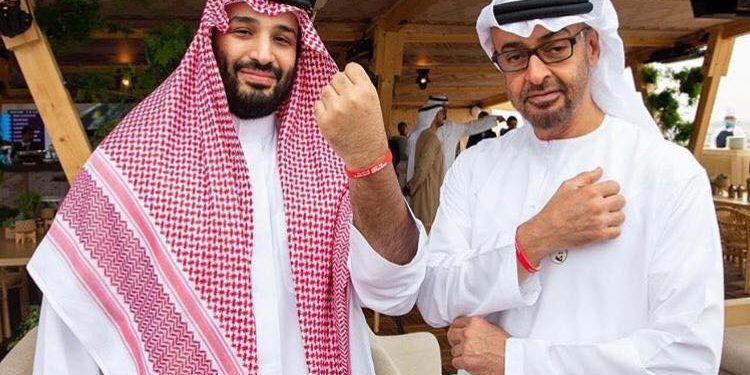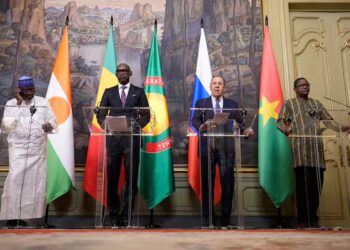By Chioma Iruke
Saudi Arabia is currently in a public spat with its Emirati allies, the United Arab Emirates (UAE) over a critical oil output deal, escalating tensions ahead of another meeting of the OPEC+ alliance on Monday.
The UAE has bitterly opposed a proposed deal by the alliance of oil-producing countries to raise production, causing a stalemate that could derail efforts to curb rising crude prices amid a fragile post-pandemic recovery.
Recall, a failure to reach a deal could drive crude prices sharply higher, threatening an already tenuous global recovery from the coronavirus pandemic.
It also threatens to break up the OPEC+ alliance, which could trigger a price war that would create global economic havoc.
Last year, a similar disagreement over oil quotas between Saudi Arabia and Russia led to an aggressive price war that exacerbated the price collapse triggered by the pandemic, but the UAE has stood firm, stalling OPEC+ talks last week.
“It’s the whole group versus one country, which is sad to me but this is the reality,” Saudi Energy Minister, Prince Abdulaziz bin Salman, told Bloomberg television, suggesting the United Arab Emirates were isolated within the 23-member OPEC+ bloc.
In a separate interview with Al-Arabiya television aired late Sunday, Prince Abdulaziz called for “a bit of rationality and a bit of compromise” ahead of Monday’s meeting.
Since May, the group has raised oil output little by little, after slashing it more than a year ago when the coronavirus pandemic crushed demand.
The current proposal is to ratchet up output by 400,000 barrels per day each month from August to December, pumping an additional two million BPD of crude into the market by the end of the year.
However, talks have floundered over a proposal to extend those measures until the end of 2022.
The UAE, which only supports a short-term increase, on Sunday demanded better terms for a deal extension into 2022.
“The UAE demands to have justice in the new agreement… and it is our sovereign right to demand reciprocity with the rest of the countries,” Emirati Energy Minister Suhail Mohamed Al-Mazrouei said in a television interview on Sunday.
“It is unreasonable to accept further injustice and sacrifice — we have been patient,” he told Sky News Arabia.
At the heart of Riyadh’s dispute with Abu Dhabi is the issue of “baseline” production levels, against which OPEC+ members determine cuts or increases.
Al-Mazrouei said his country’s current baseline, 3.17 million BPD, was too low and should be set at 3.8 million if the deal is extended. That was rejected by Saudi Arabia’s Prince Abdulaziz.
“I’ve been attending OPEC+ meetings for 34 years and have never seen such a demand,” he told Al-Arabiya.
Their comments were unusually frank in a region where disputes are typically handled discreetly behind palace walls.
Prince Abdulaziz has refused to give in to Abu Dhabi, saying extending the deal until the end of 2022 was necessary for a stable energy market.
“We have to extend,” Prince Abdulaziz bin Salman told Bloomberg.
“The extension puts lots of people in their comfort zone,” he added.




































